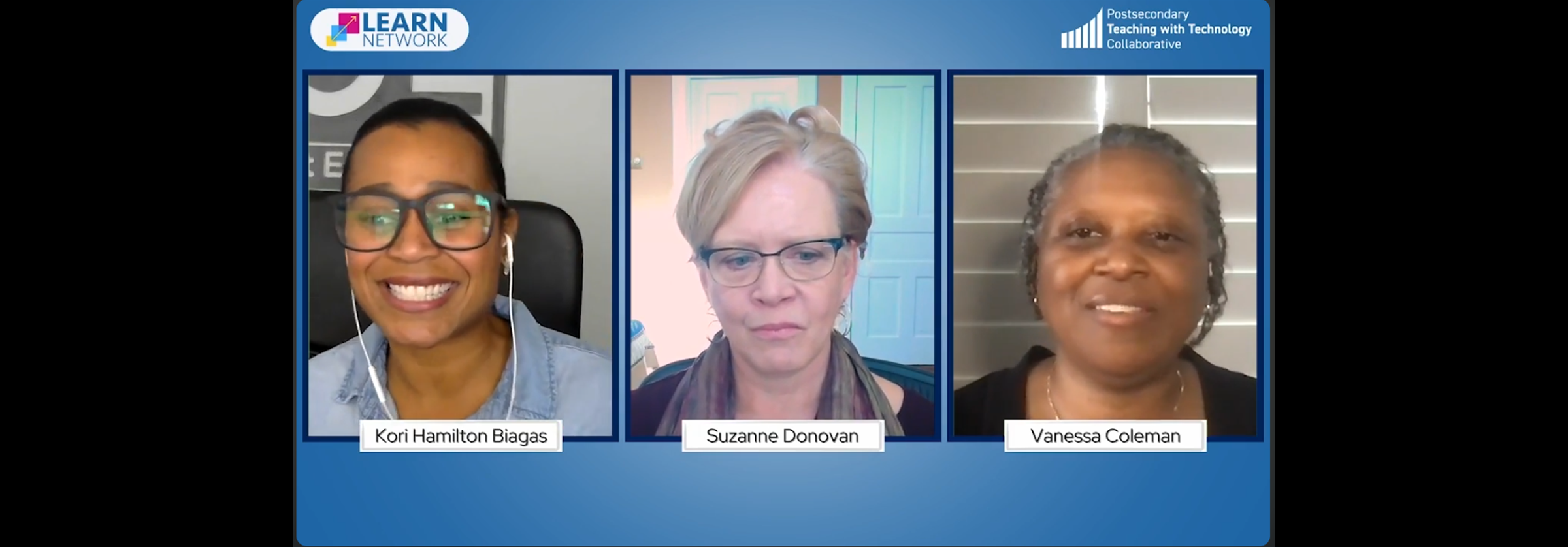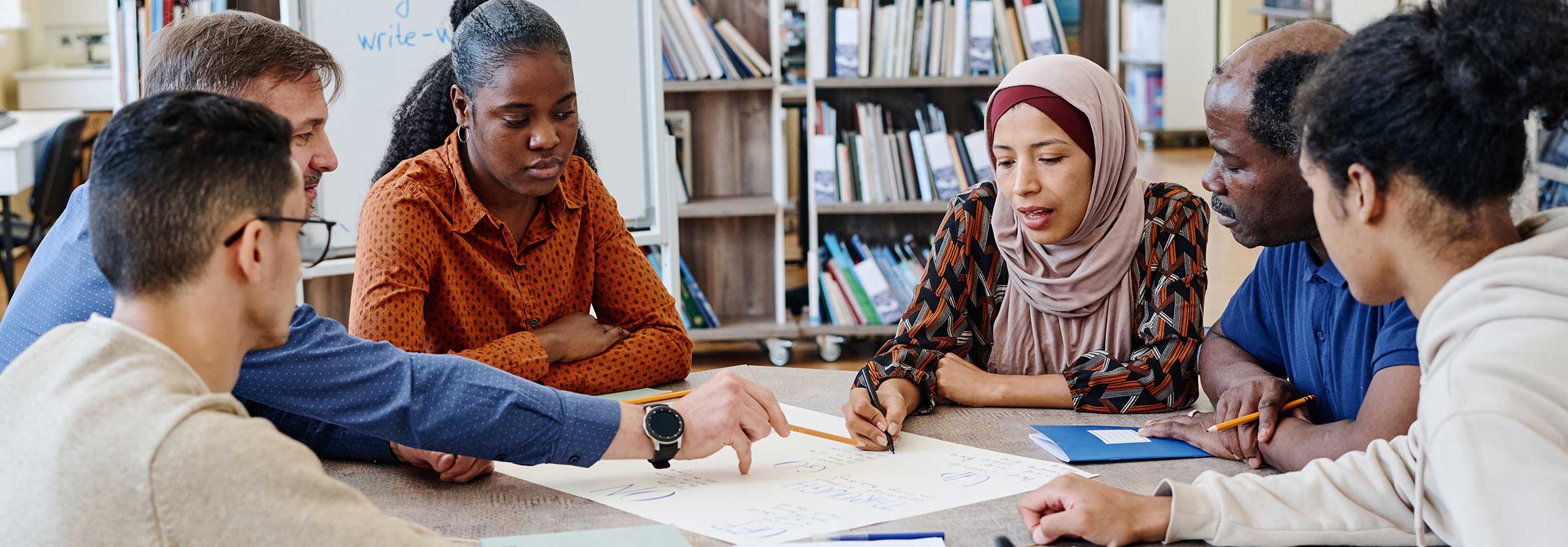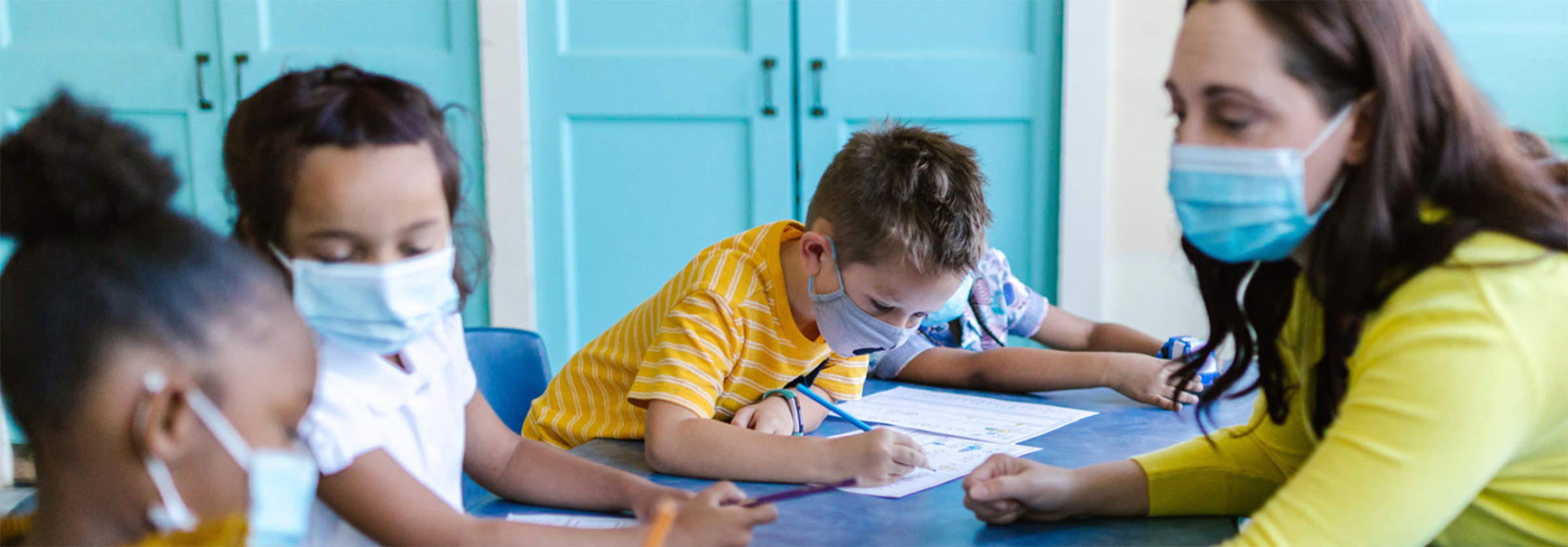In the latest episode of The SRI Homeroom podcast, SRI Senior Education Researcher Adrienne Woods joins host Kori Hamilton Biagas to explore strategies for identifying points of intervention along the K–12 continuum that can be used to advance educational and societal opportunities for children with disabilities.
Suzanne Donovan, executive director of the Strategic Education Research Partnership (SERP) Institute, and Vanessa Coleman, co-director of SRI’s Center for Education Research & Innovation, recently sat down for a conversation with LEARN Network’s Kori Hamilton Biagas to discuss scaling innovations that disrupt inequity and create system-level change.
In this video from the Learn Network’s Stories of Scaling series, Suzanne Donovan, executive director of the Strategic Education Research Partnership (SERP) Institute, and Vanessa Coleman, co-director of SRI’s Center for Education Research & Innovation, sit down for a conversation with LEARN Network’s Kori Hamilton Biagas.
One of the central goals of the LEARN Network is to help educational products that already have a strong evidence base achieve scale. Despite strong evidence demonstrating their efficacy in improving learner outcomes, many educational products do not wind up in the hands of educators. A common misconception explaining this phenomenon is that education practitioners (superintendents, curriculum and instruction leaders, and principals) do not prioritize using research-based solutions.
The Leveraging Evidence to Accelerate Recovery Nationwide (LEARN) network, a new three-year grant funded by the Institute of Education Sciences (IES) and led by SRI International, constitutes one element of the federal strategy to address both long-standing student learning achievement gaps and those exacerbated by the COVID-19 pandemic.







